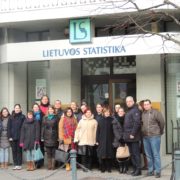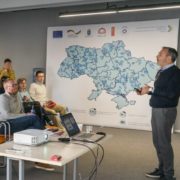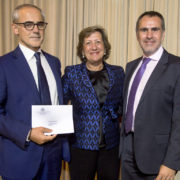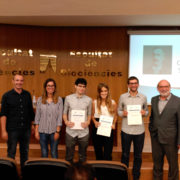Archive for year: 2017
Assistance for the organisation of the ESTP courses
/in News/by adminAssistance for the organisation of the European Statistical Training Programme (ESTP)
Within the framework of Eurostat’s European Statistical Training Programme (ESTP), DevStat in consortium with the Lithuanian Department of Statistics and the National Statistical Institute of Bulgaria held a three-day and two-day courses severally on “Advanced R”and “Introduction to time series analysis with JDemetra+” in Luxembourg on the 27th – 29th November and 04th – 05th December 2017 respectively.
The course on Advanced R was taught by Mr Alexander Kowarik (course leader) and Mr Bernhard Meindl, both from Statistics Austria. The course on Introduction to time series analysis with JDemetra+ was taught by Mr Duncan Elliott (course Leader). Courses were attended by more than 20 participants that are part of Eurostat’s staff.
DevStat thanks the trainers and also the participants for their commitment during the course.
Assistance for the organisation of the ESTP Courses
/in News/by adminAssistance for the organisation of the European Statistical Training Programme (ESTP)
Within the framework of Eurostat’s European Statistical Training Programme (ESTP), DevStat in consortium with the Lithuanian Department of Statistics and the National Statistical Institute of Bulgaria held a three-day course on “Non-response and non-sampling errors in household surveys” in Vilnius between the 4th -6th December 2017.
The course on Non-response and non-sampling errors in household surveys was taught by Ms Danutė Krapavickaitė (course leader) and Ms Inga Masiulaitytė-Šukevič. Both trainers are part of the National Statistical Institute of Lithuania, which support was essential for the success of the course.
The course was attended by more than seventeen participants from several National Statistical Institutes within the European Statistical System (ESS) and from candidate countries.
DevStat thanks the trainers, Statistics Lithuania and also the participants for their commitment during the course.
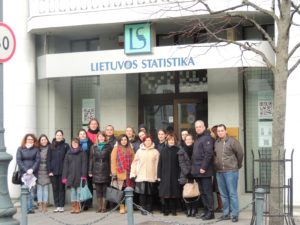
The 5th meeting of the Steering Committe QUAL
/in News/by adminThe draft proposals for recommendations on how to enhance the European Statistical System (ESS) Common Quality Framework were presented and discussed during the 5th meeting of the Steering Committe QUAL held on the 29th of November 2017 in Luxembourg. The proposals were formulated by the consortium DevStat – Statistics Norway within the frame of the contract on “Development of Conceptual Elements for a Common Quality Framework in the European Statistical System (ESS)” signed with Eurostat. The proposals are based on an exhaustive and structured inventory of quality management practices in the ESS, built during the initial phase of the project. The consortium was represented at the 5th Steering Committee QUAL by Hans Vigo Saebo and Florabela Carausu.
Statistics for regional development policy
/in News/by adminA short note on the statistical information for regional policies was published by José Cervera in the “Strategy for Development” magazine published by the Ukrainian REGIONET network of specialists. This communication takes place in the framework of the U-LEAD programme (http://u-lead.decentralisation.gov.ua/), financed by the EU and the governments of Germany, Poland, Sweden, Denmark and Estonia to support the process of decentralisation and regional development in Ukraine, where José acts as advisor on statistics and indicators for policy monitoring and evaluation.
Find the short notice here.
Indicators for regional and local policies
/in News/by adminIn the context of the political decentralisation in Ukraine and the devolution of competences on regional development, DevStat’s CEO José Cervera delivered a presentation on the methodology for the production and analysis of territorial statistical indicators to the staff of GIZ and other international experts in Kiev.
The experience of DevStat in local and regional statistics includes not only the current project in Ukraine, but also the implementation of a 2-year project in Moldova on the production of regional GDP and other statistics, the methodological support to Eurostat in the definition of “labour market areas” and the creation of a database on Local Administrative Units (LAU) lifecycle, and the assessment of regional statistics in Tunisia.
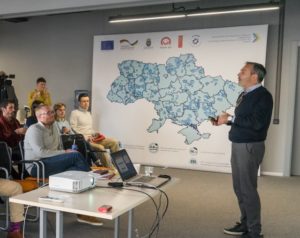
New article published: behavioural economics and cybersecurity risks
/in News/by adminEl Pais has published a contribution by David Rios (ICMAT – CSIC) and Jose Vila (Scientific Director of DevStat and Director of the DevStat Chair at University of Valencia) on the increasing role of mathematical models and behavioural economics to analyse cybersecurity risks and support the development of the cyber-insurance industry in Europe.
The article is available (in Spanish) at:
https://elpais.com/elpais/2017/06/09/ciencia/1497007591_365257.html
DevStat’s Scientific Director awarded a prize for a new co-authored paper.
/in News/by adminA paper co-authored by Jose Vila (Scientific Director of DevStat and Director of the DevStat Chair at University of Valencia) has been awarded with the prize to the best work in the category of practical contribution to the Colloquium of the International Actuarial Association – Life Section (IAALS) hold in Barcelona on 23 and 24 of October. The paper has been also co-authored by Jesus Garcia.
This work applies a Behavioural Economics approach, inspired on the methodology developed by the 2017 Nobel Prize in Economics Richard Thaler, to nudge the employees of a leading life insurance company in Spain to save more for their private retirement plans. The result of the paper is quite relevant for policy-making within the discussion of the sustainability of the public pension system in Spain and other European countries.
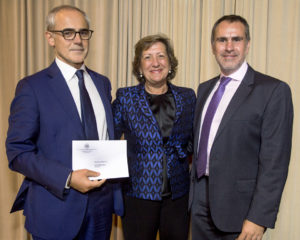
The Refugee Response Index
/1 Comment/in News/by adminDevStat supports the compilation of an international index to measure the response of countries to the refugee crisis. Together with the NGO DARA, and in close consultation with the UNHCR, the index will be based on expert assessment of different aspects of pro-refugee policy and implementation. As part of its corporate social responsibility, DevStat has also contributed to the financing of this initiative.
More information in the following link: http://daraint.org/2017/01/25/5420/refugee-response-index-rri/
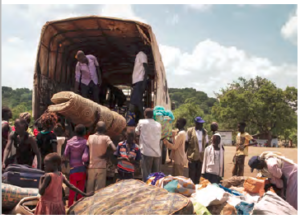
Marcos Quijal has been awarded the Student price
/in News/by admin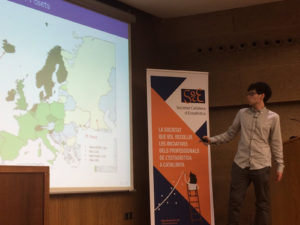 DevStat is proud to announce that our latest recruit, the young mathematician Marcos Quijal, has been awarded the Student price of the Autonomous University of Barcelona for his Master’s dissertation. Marcos applied the novel “Posets” (partially ordered sets) technology to develop Human Development Indicators.
DevStat is proud to announce that our latest recruit, the young mathematician Marcos Quijal, has been awarded the Student price of the Autonomous University of Barcelona for his Master’s dissertation. Marcos applied the novel “Posets” (partially ordered sets) technology to develop Human Development Indicators.


